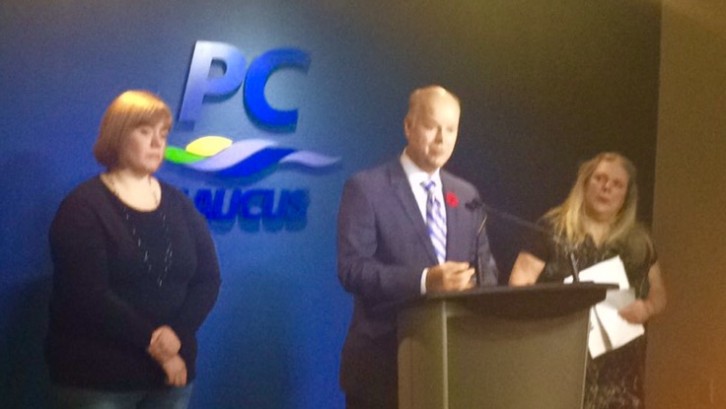Government
PC leader says more action is needed to fix mental health crisis in NS
The PC party announced a proposed bill to require a public inquiry into the mental health system in Nova Scotia

caption
[media-credit id=101029 align=”alignnone” width=”726″] [/media-credit]
[/media-credit]
Nova Scotia’s Progressive Conservative leader Jamie Baillie said he will introduce a bill calling for Premier Stephen McNeil to take action towards improving the existing mental health system. The party will introduce the bill in the upcoming house session. Baillie made the announcment Tuesday, Nov. 10.
Baillie first called for a public inquiry on the issue this past July. He later launched a petition during Mental Illness Awareness Week in October. Hundreds of people have since added their names to the petition in favour of a public inquiry.
In 2012, the Nova Scotia government launched the province’s first ever mental health and addictions strategy. Together We Can, is a five year plan to improve mental health and addictions care.
The government’s plan consists of a list of 33 actions to be taken towards improving the system. As of October 2015 only five of these actions have not been seen through to completion according to the Department of Health and Wellness.
The provincial Department of Health and Wellness says the government has increased funding to mental health issues, spending more than $270 million since the start of 2015. But the Progressive Conservative party said this progress is still not enough.
Baillie said too many people are still falling through the cracks of the mental health system.
Baillie wants the inquiry to investigate the state of the mental health system in the province and recommendations to make the treatment better and more accessible.
“The Liberals say there is no crisis in the mental health system. I don’t know how they can hear the stories that I have heard and still say that,” said Baillie.
Halifax residents Fran Morrison and Laurel Walker joined Baillie at the press conference to speak about their personal experiences with the mental health system.
Morrison lost her son to suicide. She said the mental health system was ineffective in providing her son with the help and attention he needed following his first suicide attempt.
“The police were the only people that took my son’s cry for help seriously,” she said. She is upset with how the system treated her son’s condition, and the lack of answers she got as to why his problems were so easily dismissed.
Walker has spent years dealing with mental health issues herself. She said the province failed to help her with depression and post traumatic stress disorder.
“I knew we didn’t have the mental health resources that would allow someone the best possible chance of recovery and living the best life they could,” Walker said. Instead she applied to the province for the funding to go out of Nova Scotia for treatment.
She says she was forced to leave her life and family behind to receive adequate treatment in Ontario. She returned once the treatment was completed.
Both Morrison and Walker have since become very active in helping others going through similar situations.
Walker said many of the people she helps come to her because they know how ineffective the existing system is. “Recovery is possible with the right resources, but we cannot continue down this path and simply hope for the best,” said Walker.
The minister of health was travelling Tuesday and was unavailable for comment, but Tony Kiritsis, spokesperson for the Nova Scotia Department of Health and Wellness, said in an email, “At this time the department is more focused on providing timely access to services rather than conducting a mental health inquiry that would use important resources”.
The department said it is very concerned about mental health issues and will continue to focus on them in the upcoming months.

